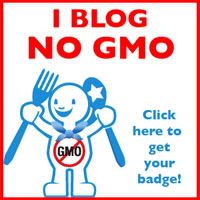 A staple of our childhood has been tainted. And because of our massive industrialized food system, this is having an impact on many (43 to date) states and a variety of brands. Big brand names have been voluntarily recalling products. We are warned not to eat foods containing peanut butter until the salmonella contamination is resolved. Sadly, this isn't new. 2007 had a recall of peanut butter for the same reason. But maybe this isn't the only reason to be concerned about peanut butter.
A staple of our childhood has been tainted. And because of our massive industrialized food system, this is having an impact on many (43 to date) states and a variety of brands. Big brand names have been voluntarily recalling products. We are warned not to eat foods containing peanut butter until the salmonella contamination is resolved. Sadly, this isn't new. 2007 had a recall of peanut butter for the same reason. But maybe this isn't the only reason to be concerned about peanut butter.Traditional peanuts are grown with a lot of nasty chemical pesticides. Organic brands are not.
Most conventional peanut butters contain added sugar, hydrogenated oils, corn syrup, artificial flavors and colors, and/or other emulsifiers. Natural brands are simple, just peanuts and salt, but remember, then the oil will naturally separate and you'll have to stir it up.
 Most importantly, when peanuts grow in certain climates they can harbor aspergillus flavus, a mold not visible to the naked eye that may contain carcinogenic aflatoxin, a mycotoxin. In particular, this aflatoxin has been linked to hepatitis, liver cancer, and lowered intelligence. Evidence suggests it is the leading cause of liver cancer in China and Africa. OSHA requires people working with peanuts to wear face masks so they don't breathe in too much of the mold. Most traditional peanuts come from China; there can be big temperature fluctuations in transit which can encourage mold growth. Roasting does kill the mold but not the aflatoxin and the longer the nut butter sits on the shelf, the more aflatoxin can multiply. Because of this, oddly enough, "fresh ground" peanut butter sitting out at the grocery store has the highest levels (up to ten times than of sealed brands) of aflatoxin.
Most importantly, when peanuts grow in certain climates they can harbor aspergillus flavus, a mold not visible to the naked eye that may contain carcinogenic aflatoxin, a mycotoxin. In particular, this aflatoxin has been linked to hepatitis, liver cancer, and lowered intelligence. Evidence suggests it is the leading cause of liver cancer in China and Africa. OSHA requires people working with peanuts to wear face masks so they don't breathe in too much of the mold. Most traditional peanuts come from China; there can be big temperature fluctuations in transit which can encourage mold growth. Roasting does kill the mold but not the aflatoxin and the longer the nut butter sits on the shelf, the more aflatoxin can multiply. Because of this, oddly enough, "fresh ground" peanut butter sitting out at the grocery store has the highest levels (up to ten times than of sealed brands) of aflatoxin.Dry arid climates, like the Valencia peanuts grown in Arizona, do not harbor this mold. By choosing an organic brand from a dry climate we are saving pesticides from entering our environment and toxins from our body. Arrowhead Mills and Maranatha are two brands I trust. Refrigeration slows down the growth.
Our choices? If your family eats a lot of peanut butter, make a change for a big impact on their health. You can just avoid peanuts and peanut butter altogether because of the risk or we can all make choices to lessen our risk.
Whole peanuts: obviously don't eat them if they don't look good or are old; like nuts and whole wheat flour, I store them in my freezer to preserve freshness.
Peanut Butter:
- choose an organic brand of peanut butter to lessen chemical pesticides in our planet and bodies,
- with all natural ingredients that do not contain hydrogenated oils, corn syrup, sugar, emulsifiers, trans-fatty acids, and that long list of ingredients we can't pronounce for a more wholesome food,
- in a brand where the peanuts are grown in a dry arid areas (like Arizona or New Mexico) instead of warm, moist, humid climates or look for a "aflatoxin-free brand"
- that has been sealed from the manufacturer, not the "fresh grind your own" found in the health food stores, and not one that has sat in the store for a long time in order to lessen potential growth of the aflatoxin;
- store in your refrigerator to further slow down potential aflatoxin growth once you open it, but do that after you stir the oils and nut butter back together (or pour off the oil and stir in macadamia or walnut oil instead for a better omega 3:6 ratio) and
- enjoy in moderation instead of every single day.
 Actually a legume, not a nut, peanuts are a pretty inexpensive source of protein (you can add even more protein by adding Brewer's Yeast to your peanut butter.) They are low on the glycemic index, contain heart-healthy monounsaturated fats, contains niacin, vitamins B6 & E, fiber, magnesium, and the same antioxidant found in grapes and red wine, reservatol, which can lower our risk of some cardiovascular disease. And let's face it, Peanut Butter is yummy - that sticky spreadable goodness is delicious on the classic PB&J, or in sauces, soups, smoothies, and bakery items. There is no reason to stop enjoying peanut butter, just make some changes to get the benefit and minimize potential harm.
Actually a legume, not a nut, peanuts are a pretty inexpensive source of protein (you can add even more protein by adding Brewer's Yeast to your peanut butter.) They are low on the glycemic index, contain heart-healthy monounsaturated fats, contains niacin, vitamins B6 & E, fiber, magnesium, and the same antioxidant found in grapes and red wine, reservatol, which can lower our risk of some cardiovascular disease. And let's face it, Peanut Butter is yummy - that sticky spreadable goodness is delicious on the classic PB&J, or in sauces, soups, smoothies, and bakery items. There is no reason to stop enjoying peanut butter, just make some changes to get the benefit and minimize potential harm.Peanuts are a common allergen like soy, wheat and dairy. If you are allergic, look for alternative nut butters like cashew, almond, walnut, and tahini (sesame seed) nut butters, and be sure to read ingredients carefully as peanuts are in many processed foods. Aflatoxins can also be found in corn, wheat, milk, soybeans, rice, nuts and cotton (which is used to make cottonseed oil, an unhealthy oil found in many processed foods). Corn, for example, is in so many products from the grain-fed meats we eat to the processed foods on the shelf, and conventional corn in the U.S. is GMO, we should actually work to limit our intake of that more than peanuts but that is more complicated so we do what we can. More on how to do that later.


























I love p.b., but am not wild about the Maranatha, Arrowhead Mills brands. I do like the one that Glaser Organics sells. It's organic, but I have no idea wehre it comes from. I keep it in the fridge, last a long time (as it's a huge jar). It's the tastiest peanut butter I've found sold in the area.
ReplyDeleteBTW, thanks for the email on the food buying coop. I'm gonna give it a try (although I'm one of those folks who really, really hates to drive, so I hope there's a place close by.)
Later, thanks Annie,
Mir